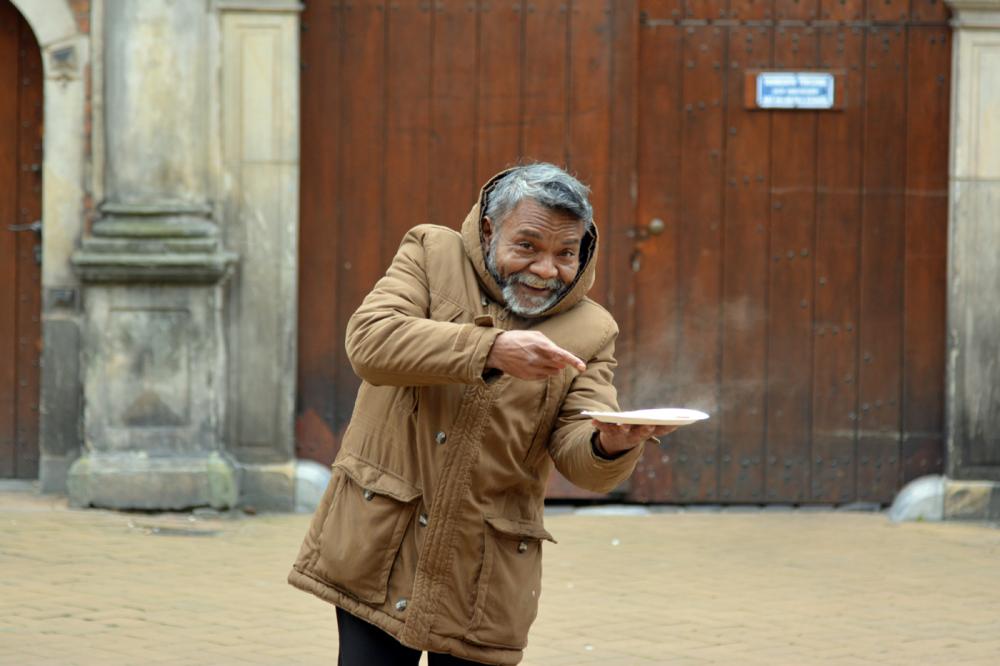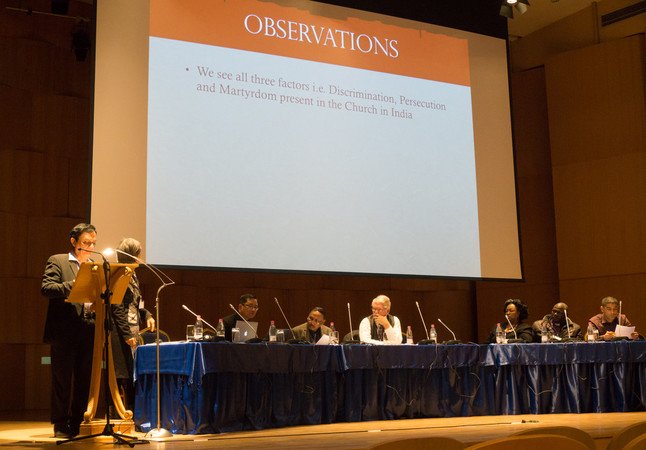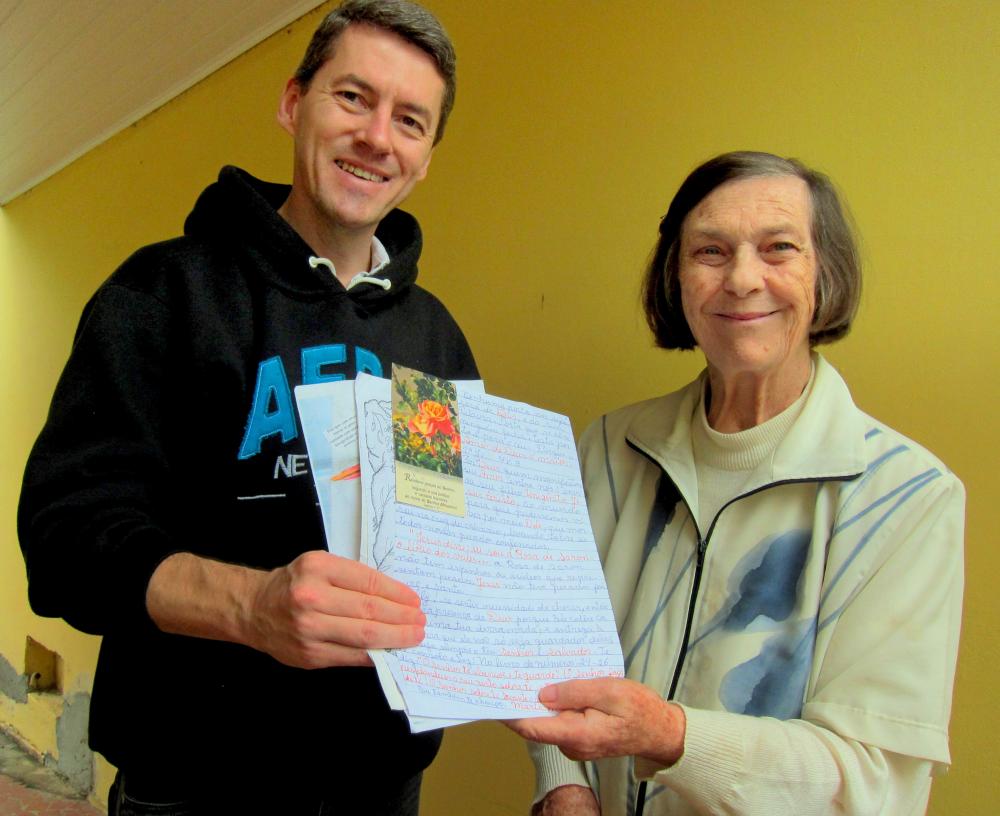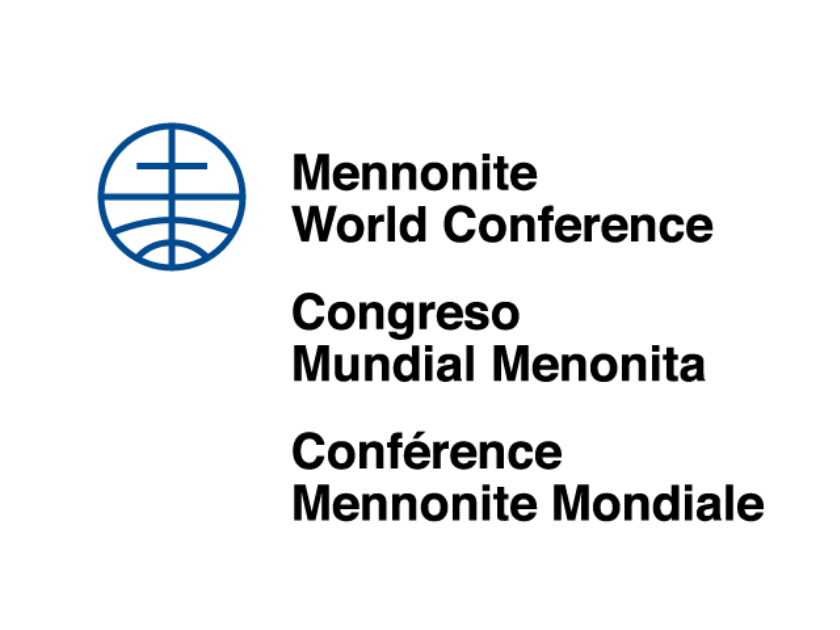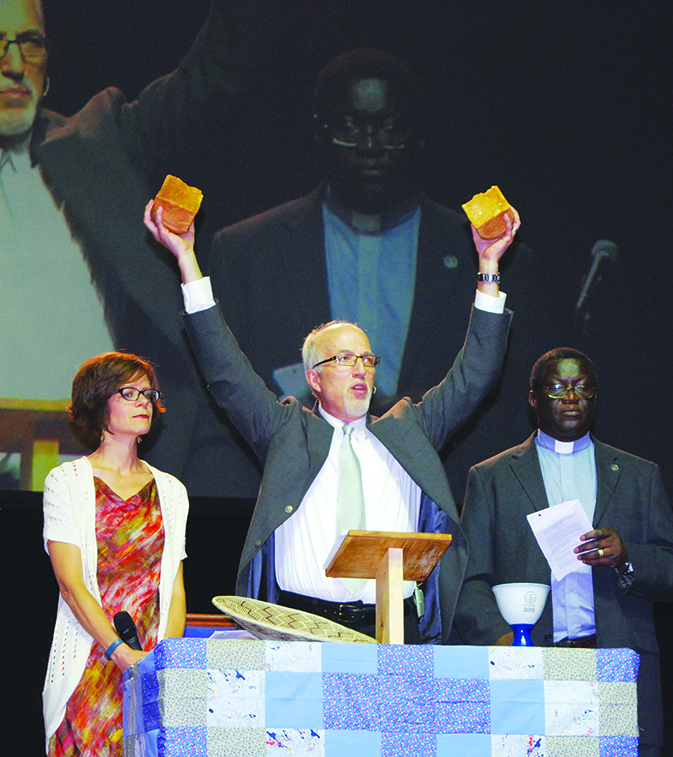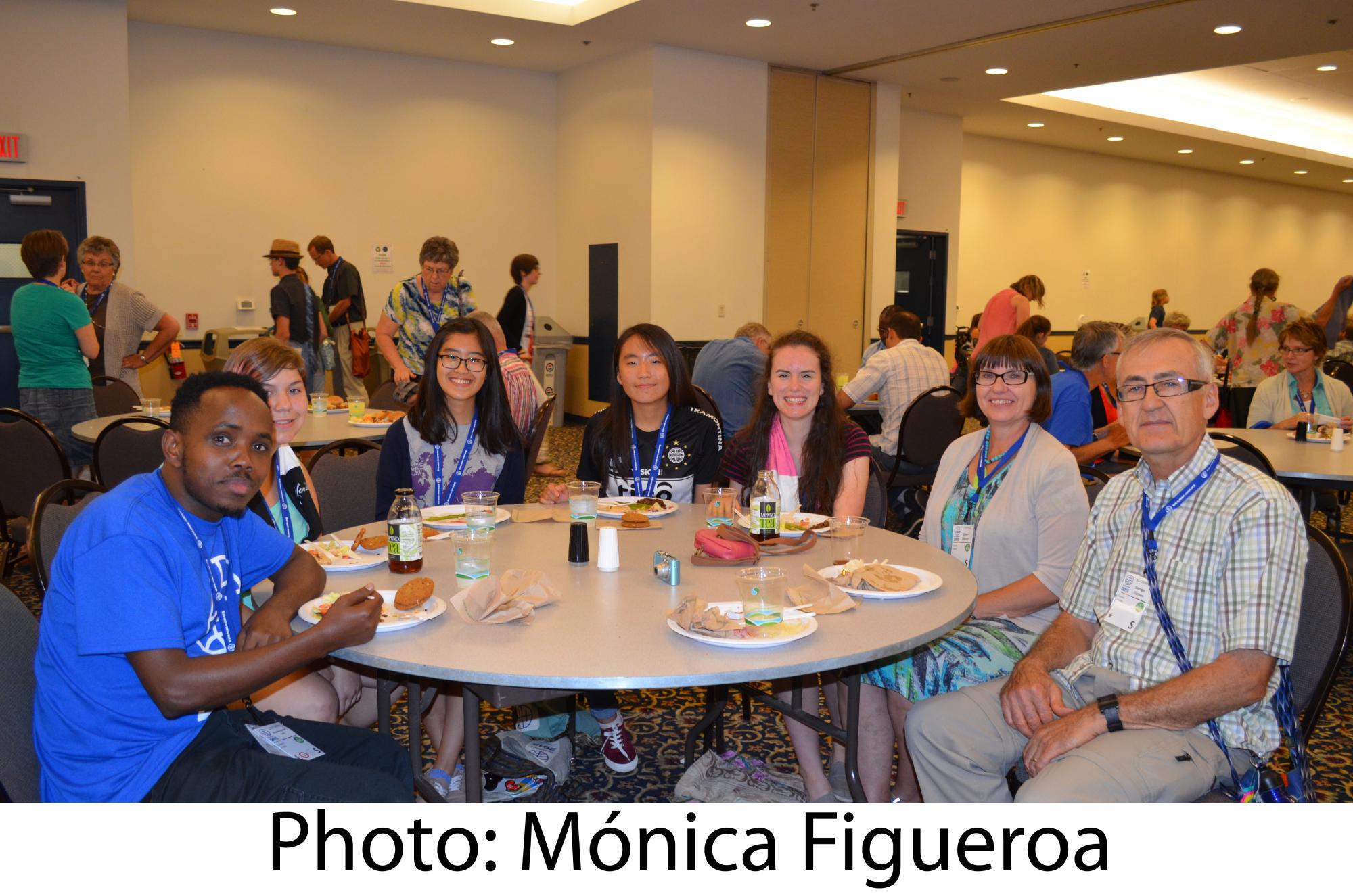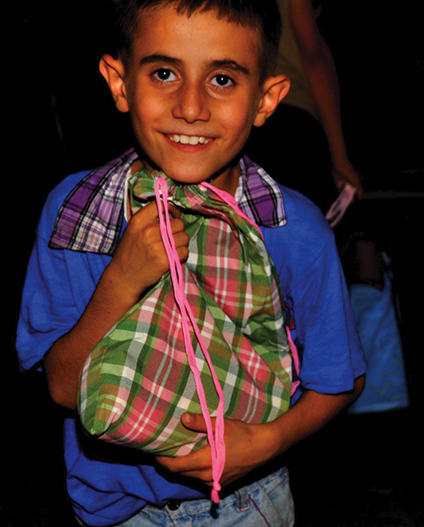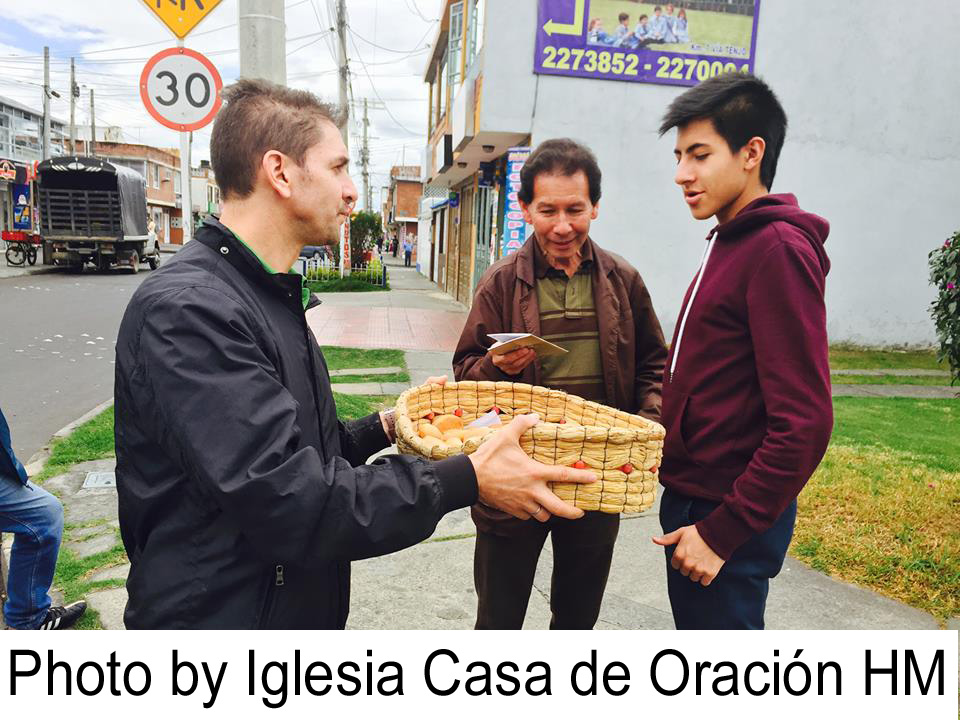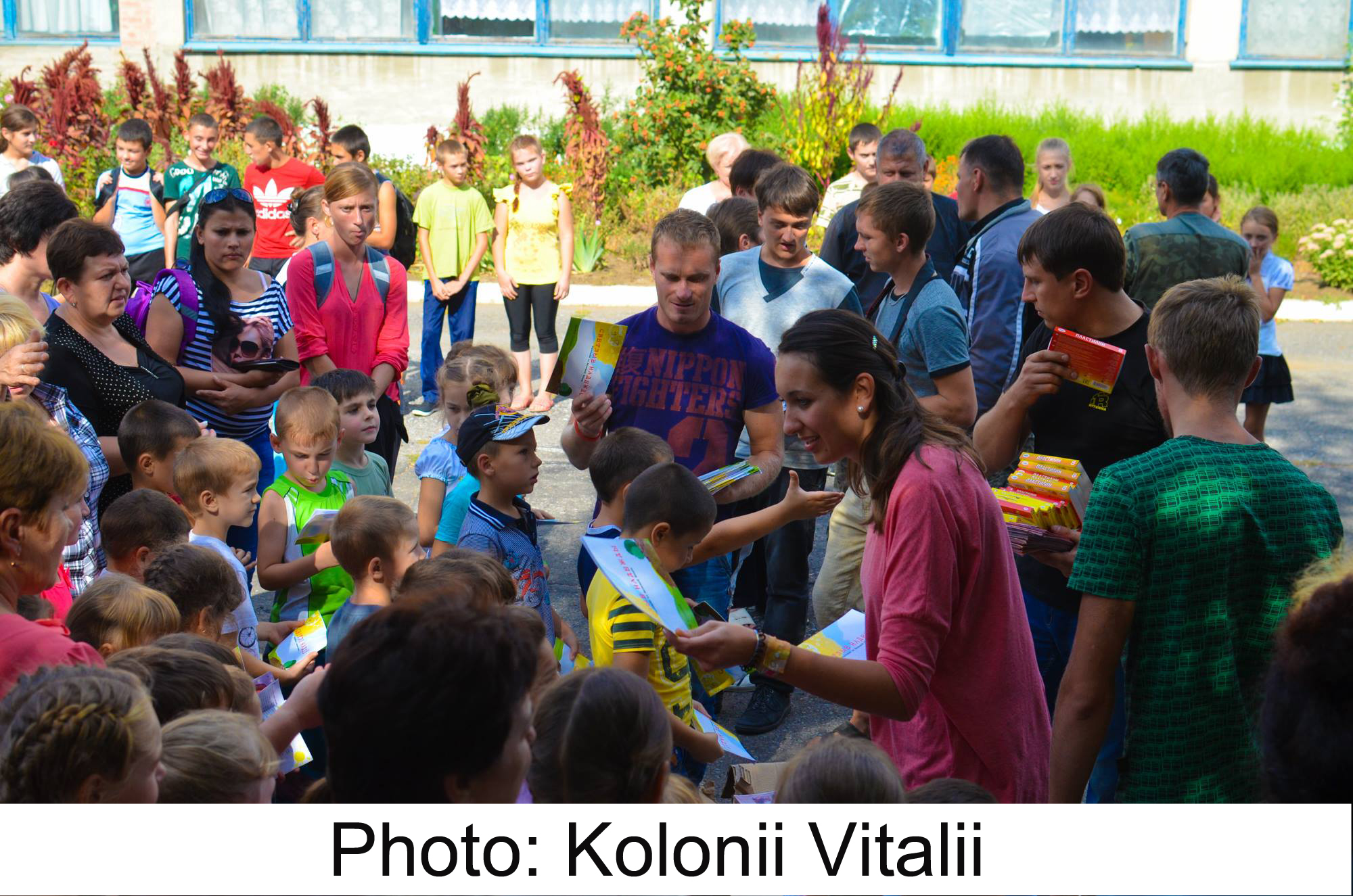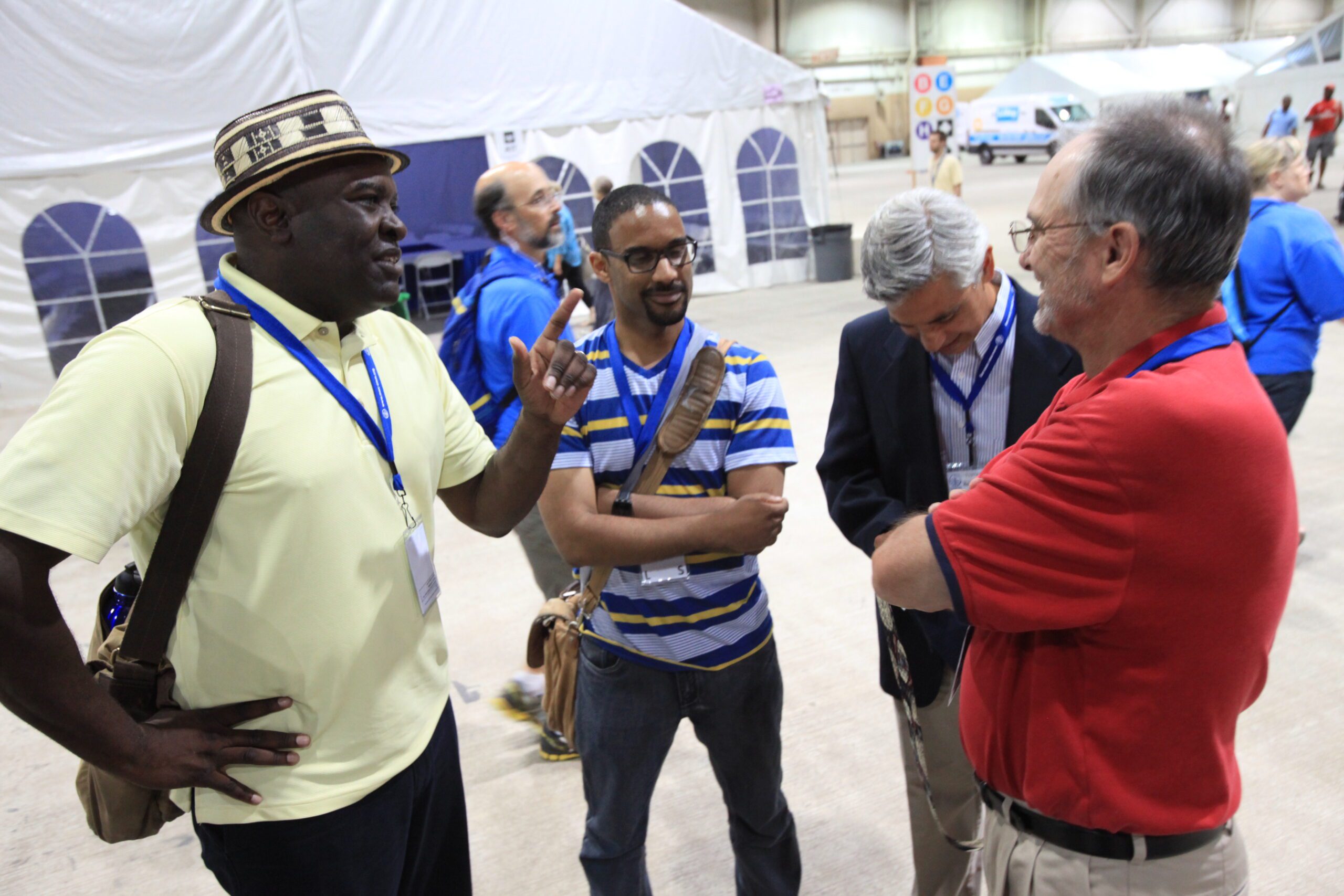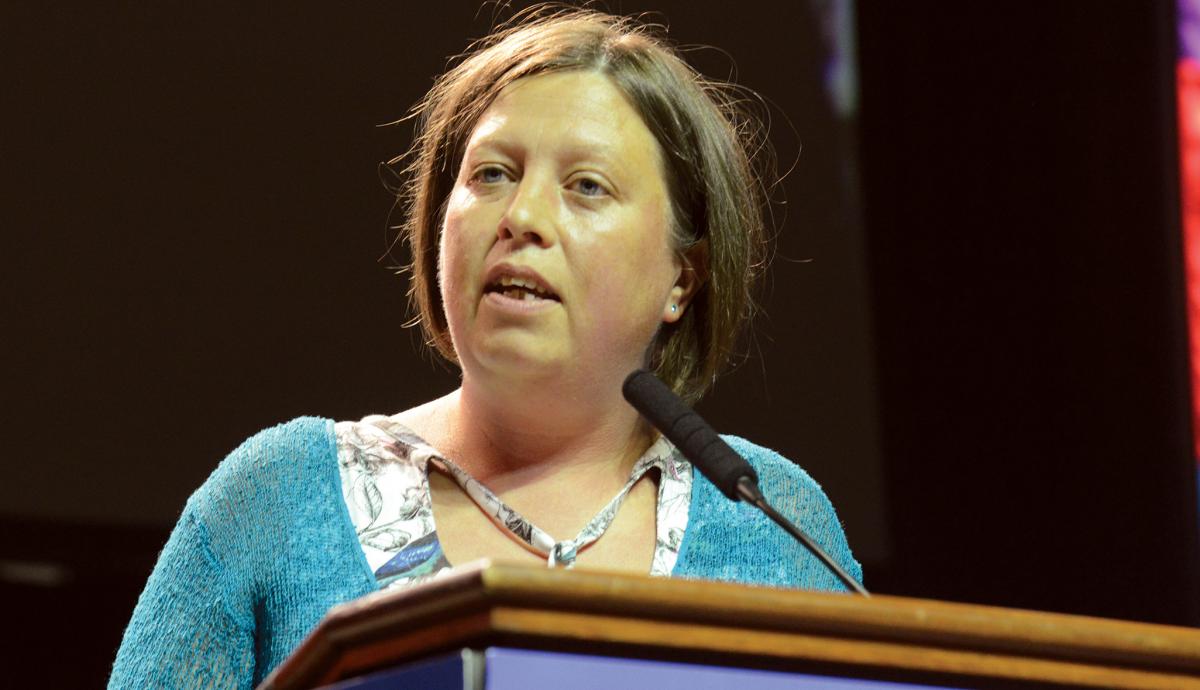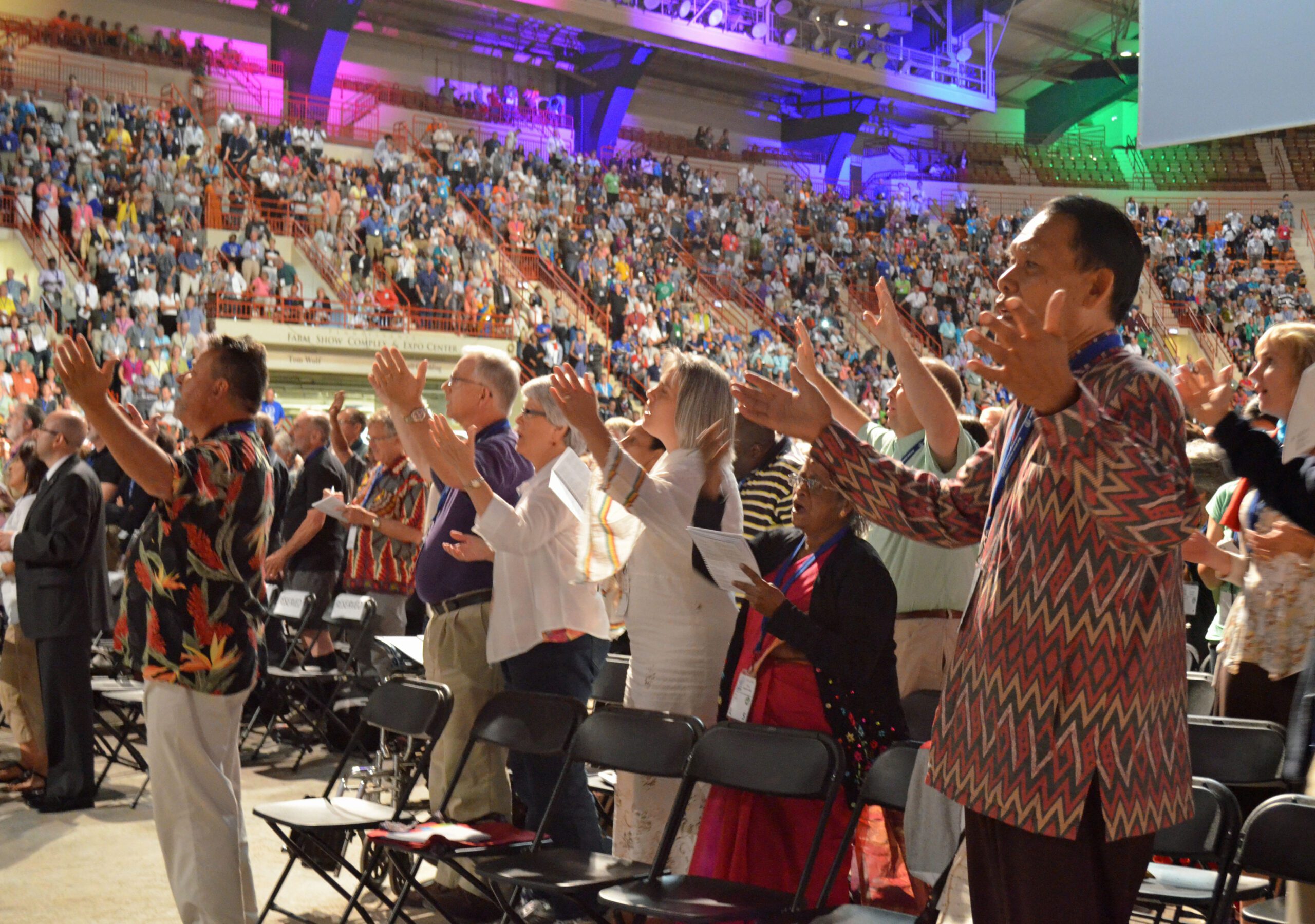-
God will show you the way
Meal ministry at Dutch Mennonite church welcomes addicts and homeless Life did not go as planned for Max Tauran. A patron of Doperse Dis (a three-year-old meal ministry in a northern Dutch city), he told the audience at a fundraising dinner that “[Life] simply went as it came…[including] chaos, mistakes, pain and sorrow.” For six
-
Churches of all stripes call for freedom of religion
Winnipeg, Canada – Representatives of every stream of global Christianity met in Tirana, Albania, 1–5 November, 2015 for a consultation on Discrimination, Persecution, Martyrdom: Following Christ Together, convened by the Global Christian Forum. Together, these 145 Christian leaders recognized the continued persecution of Christians, repented of the times Christians have persecuted those of other faith,
-
Powerful pen
A retired school teacher and prison inmates are unlikely pen pals who have exchanged thousands of letters in Curitiba over the past decade. It began when a man in prison responded to a short piece 76-year-old Dona Maria Martins published in a devotional magazine in 2006. She replied to the letter that arrived at her
-
Virée historique en Europe mennonite, novembre 2015
Collaboration de Zacharie Leclair, Muriel et Claude Queval, Richard Lougheed et Danielle Lajeunesse L’idée avait germé à Montréal, autour d’une table lors d’un repas pris en compagnie de Neal Blough, directeur du Centre mennonite de Paris et l’un des initiateurs du Réseau mennonite francophone mondial (Rfm), de Marc Paré, directeur du Centre mennonite de Montréal,
-
A Vision for Reconciliation
How did you become interested in the life of the church? Kraybill: Growing up in Lancaster, Pennsylvania, USA, my family was deeply involved in the mission of the church at the local level. Both of my parents gave tirelessly to the congregation, serving in many roles, from Sunday school teachers to janitors. My uncle Nevin
-
A deeper shade of green: Waste reduction measures at PA 2015
Winnipeg, Canada – Mass events can leave behind a mountain amount of trash. But at Mennonite World Conference’s 16th Assembly in Harrisburg, 21–26 July 2015, the management of garbage was an expression of worship to God the creator. Assembly organizers “decided early on that we would attempt to make the conference environmentally friendly to the degree that
-
Celebrating Peace Sunday: A call for people who sow peace in peace
Pietermaritzburg, South Africa – September 21 marked the International Day of Peace – an event observed around the world with the hope that global citizens may renew their desire to work for peace. Mennonite World Conference and its member churches participated in this global day of commitment to peace by celebrating Peace Sunday on September
-
Churches in Latin America call for prophetic peace witness
Pietermaritzburg, South Africa – As Mennonite World Conference (MWC) member churches celebrated Peace Sunday on 20 September 2015, they also recognized the ways in which peace continues to be wanting in their communities. In Colombia, Mennonite and Mennonite Brethren churches, and Global Anabaptist Service Network agencies Justapaz and Mencoldes considered the meaning of peace as
-
Sharing our gift of prayers for Ukraine
GYS hears the challenges of the Mennonite church in Ukraine More than a year ago, Crimea – a Russian-speaking province on the south of Ukraine – was taken over by Russia through some military actions and a referendum. The conflict has since expanded to parts of eastern Ukraine, where more than 6,000 people have been
-
Is Christian faithfulness possible without unity?
By all accounts, the 16th Mennonite World Conference Assembly 21–26 July 2015 in Harrisburg, Pennsylvania, USA, was a resounding success. Memories of worshiping with more than 8,000 people from 65 countries; unexpected encounters with old and new friends; the beautiful profusion of sights and sounds of a truly global church; workshops on challenging topics and
-
Walking in Autonomy and Community
How to be independent together In the beginning, man was alone. Even though God created all animals and brought them to man to be named, man was alone. And it didn’t suit him at all. God could see that, and so he whispered a deep, deep sleep unto man and while he slept, God took
-
World Fellowship Sunday materials available
Bogotá, Colombia – “Walking with God finds its total meaning in fellowship – in the breaking of bread, serving, and meeting the needs of others,” says César García, general secretary of Mennonite World Conference. “It does not mean the absence of challenges, but recognizing we are assured of victory with and through God.” World Fellowship
